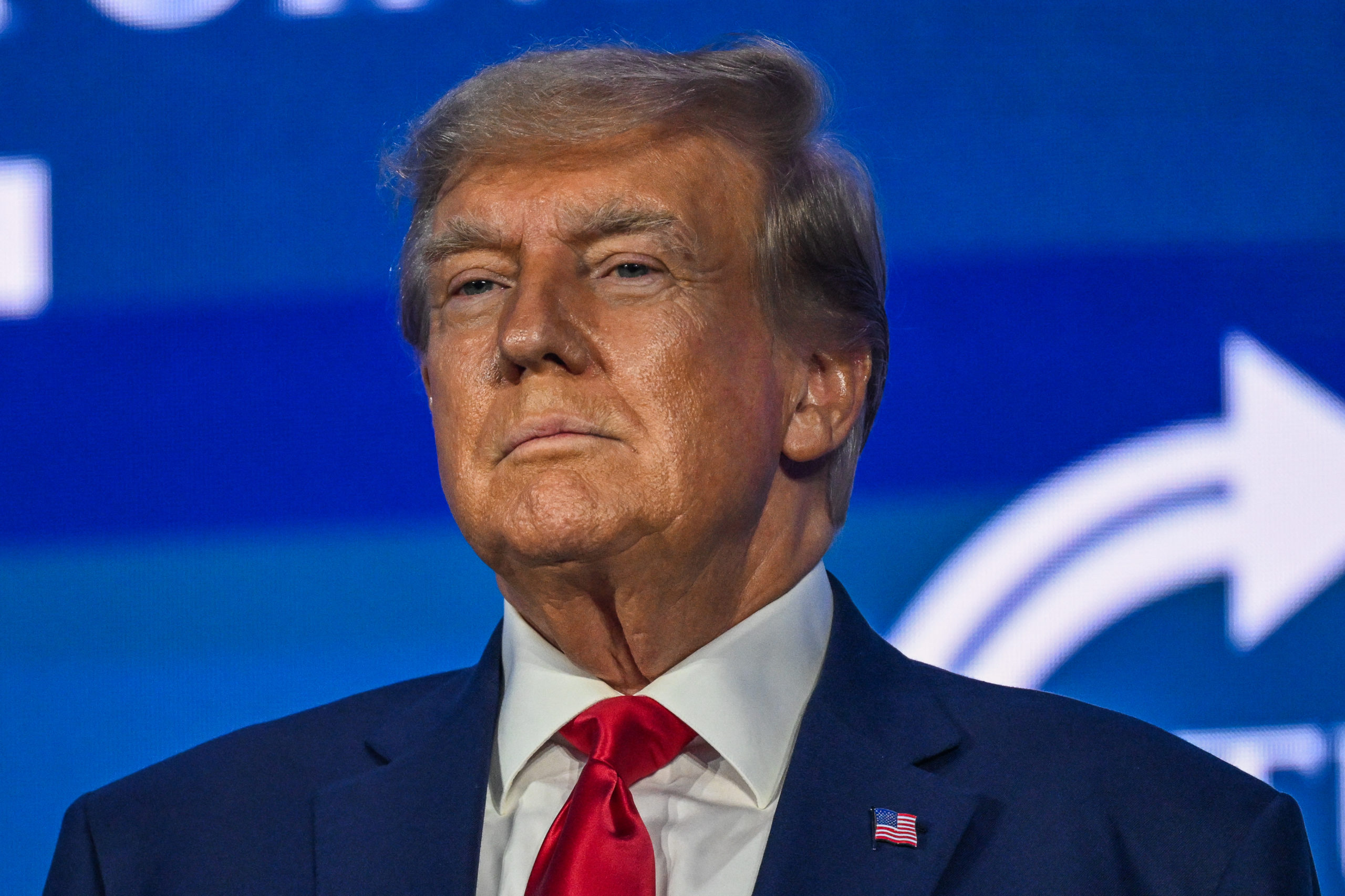Trump’s legal problems overshadowed DeSantis’ campaigning in South Carolina.
TAMPA BAY
Florida Gov. Ron DeSantis held a brief news conference Tuesday as part of a shift in strategy for his presidential campaign, but the governor took only four questions, almost all of which centered on the party’s front-runner Donald Trump.
DeSantis’ attempt to change the conversation, which came while campaigning in South Carolina as he rolled out a policy plan for the military, underscored the challenges he faces to try to overtake the former president and his command of the spotlight in the GOP presidential race.
The Florida governor’s day on the campaign trail was supposed to be focused on his filing paperwork for South Carolina’s Republican primary, followed by his news conference and a CNN interview later Tuesday.
But shortly before DeSantis’ event was scheduled to start, Trump, as he often does, overshadowed the day. The Republican former president broke the news on his social media network that he’d been informed he is a target of the Justice Department’s investigation into efforts to overturn the results of the 2020 presidential election.
Trump’s news, an indication he could soon be charged by U.S. prosecutors, and his behavior on around the Jan. 6, 2021 insurrection at the U.S. Capitol was the subject of two of the four questions DeSantis received at his news conference.
DeSantis, who has offered tepid criticism of Trump amid his legal troubles, made his strongest criticism yet of the former president’s actions on Jan. 6.
“Look, there’s a difference between being brought up on criminal charges and doing things. Like for example, I think it was shown how he was in the White House and didn’t do anything while things were going on. He should have come out more forcefully, of course,” DeSantis said of Trump’s actions that day as rioters stormed the Capitol.
“But to try to criminalize that, that’s a different issue entirely,” he said. He went on to repeat statements he has made previously regarding Trump’s criminal charges by decrying a “politicization” of the justice system.
A third question from a reporter asked DeSantis how he planned to win in South Carolina after voters there had overwhelmingly supported Trump in the past.
DeSantis and his campaign are facing a consequential moment as the governor makes his third swing through South Carolina as a White House hopeful. He entered the race in May with expectations that he would become the primary threat to Trump. But DeSantis has struggled to make inroads against Trump, who holds a commanding lead in the primary, and recently began cutting campaign staff.
Speaking to reporters earlier Tuesday as he filed his paperwork, he rejected suggestions that his campaign might have grown too big in its early stages.
“At the end of the day, when you start there are certain investments that you make,” he said. “We really believe having an important apparatus on the ground is important in caucus states and early states.”



Connect with us on our socials: